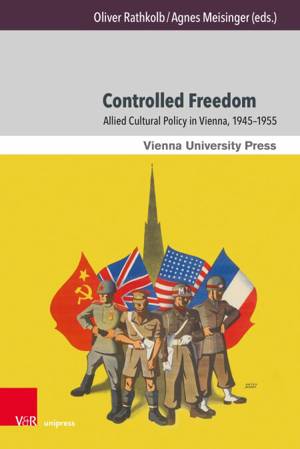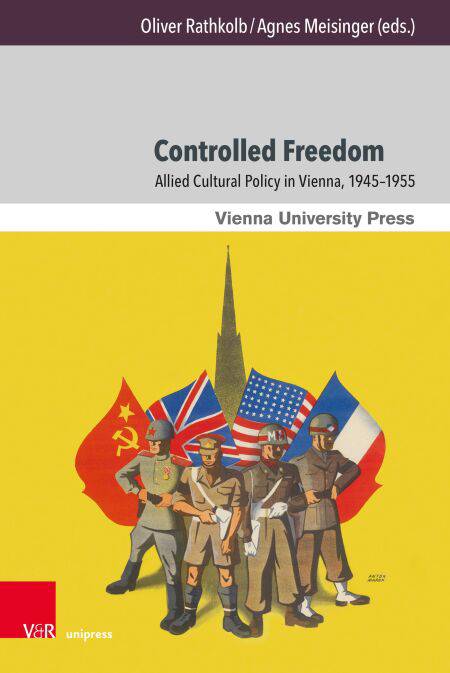
- Afhalen na 1 uur in een winkel met voorraad
- Gratis thuislevering in België vanaf € 30
- Ruim aanbod met 7 miljoen producten
- Afhalen na 1 uur in een winkel met voorraad
- Gratis thuislevering in België vanaf € 30
- Ruim aanbod met 7 miljoen producten
Zoeken
Controlled Freedom E-BOOK
Allied Cultural Policy in Vienna, 1945–1955
€ 35,00
+ 35 punten
Uitvoering
Omschrijving
Following liberation in April 1945, Vienna was characterized by destruction, cold, hunger, and an acute housing shortage. Yet cultural life soon returned: as early as 27 April, Soviet officers ordered its revival. It was not long until the other Allies – France, Britain, and the USA – launched their own cultural campaigns. The many cultural activities under Allied occupation were intended not only to underpin economic and political rebuilding, but also to promote an Austrian national consciousness – a separate self-image independent from Germany. This volume is the first to show the impact of Allied cultural policy in the fields of fine art, film, literature and libraries, music and theatre, press photography, print media, radio, and sport, thereby documenting an achievement that can still be felt today: the creation of a democratic Austrian identity.
Specificaties
Betrokkenen
- Vertaler(s):
- Uitgeverij:
Inhoud
- Aantal bladzijden:
- 235
- Taal:
- Engels
- Reeks:
Eigenschappen
- Productcode (EAN):
- 9783847018520
- Verschijningsdatum:
- 13/04/2025
- Uitvoering:
- E-book
- Formaat:

Alleen bij Standaard Boekhandel
+ 35 punten op je klantenkaart van Standaard Boekhandel
Beoordelingen
We publiceren alleen reviews die voldoen aan de voorwaarden voor reviews. Bekijk onze voorwaarden voor reviews.










